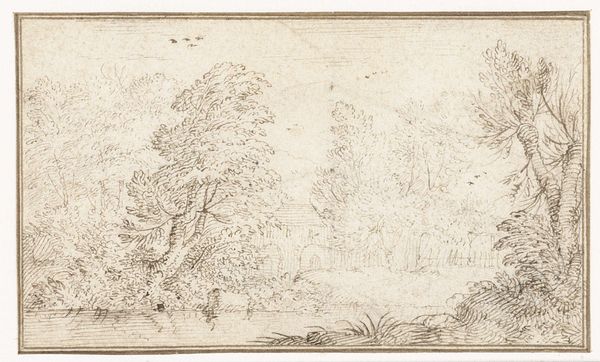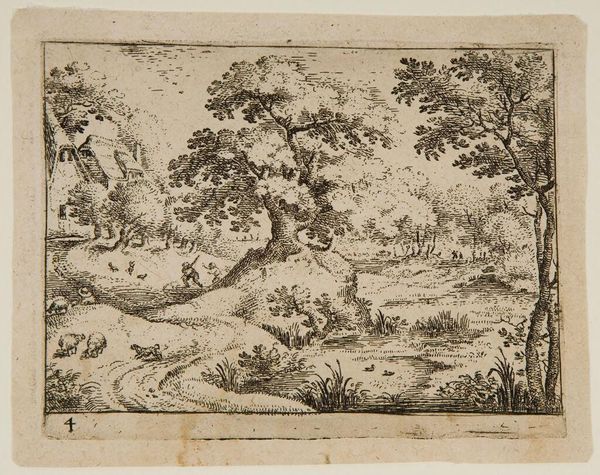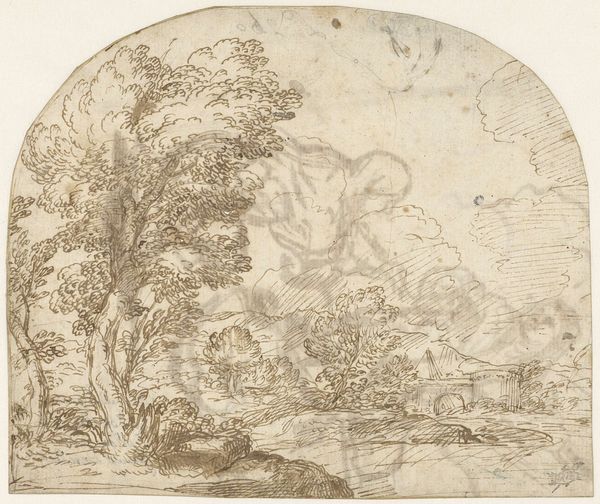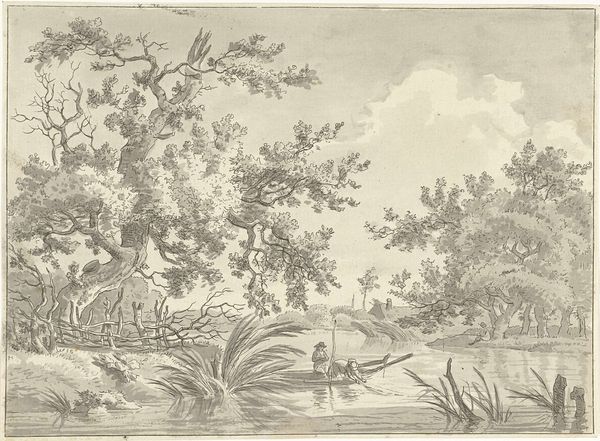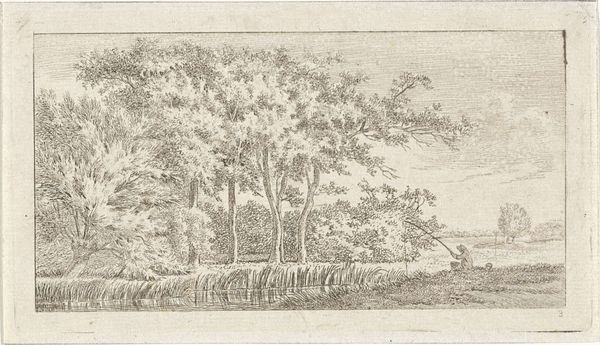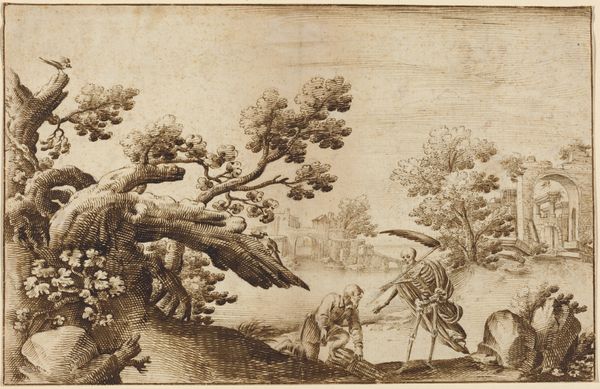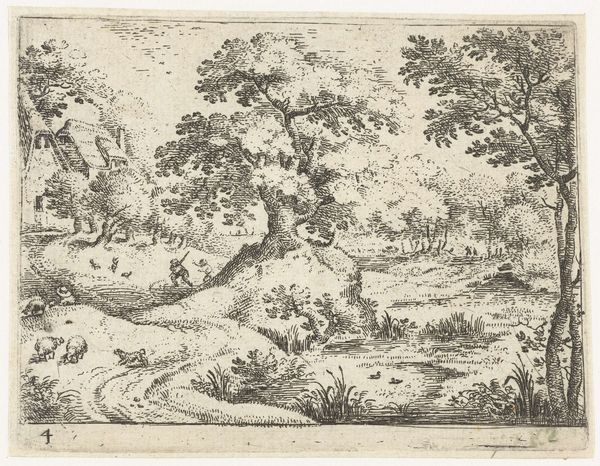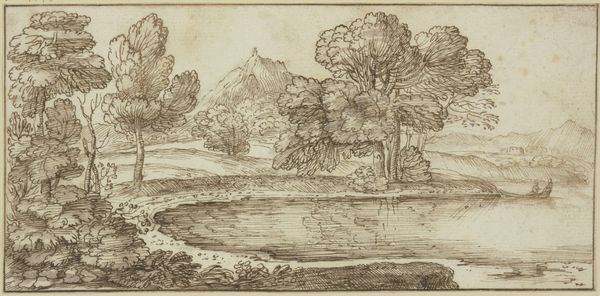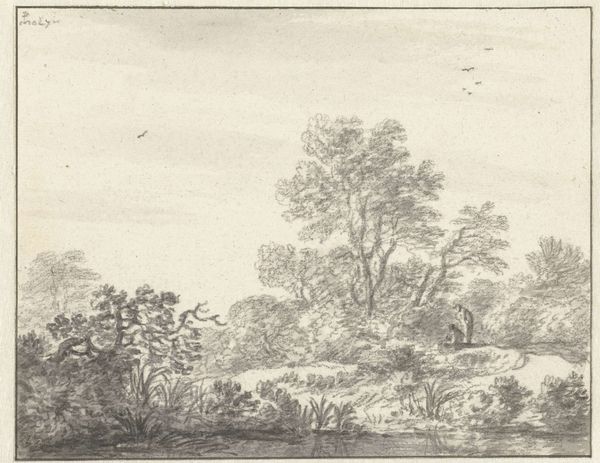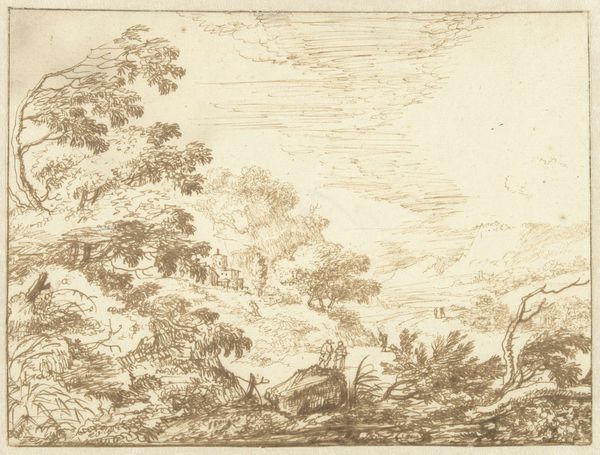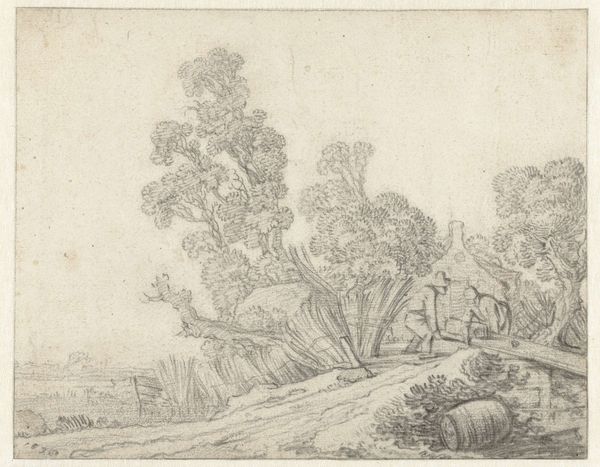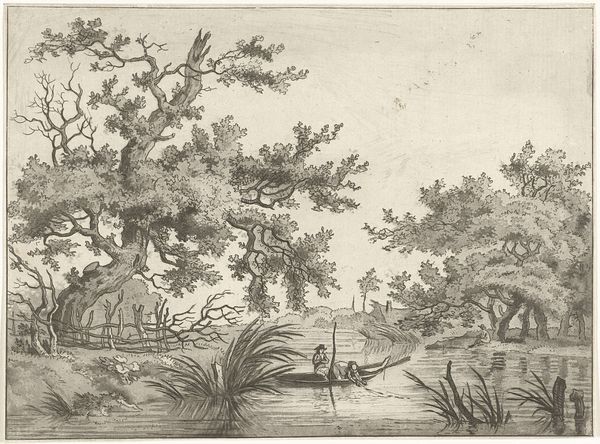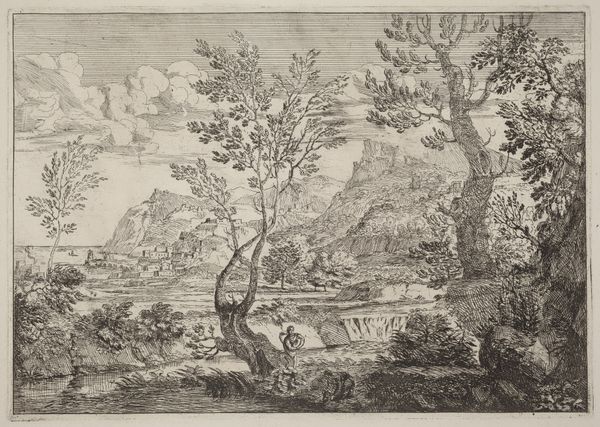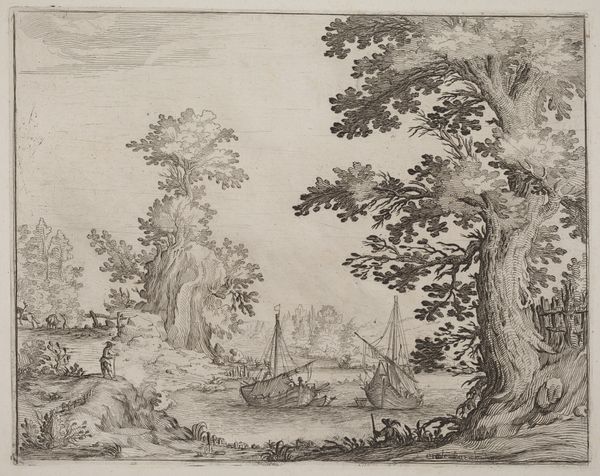
drawing, etching
#
drawing
#
dutch-golden-age
#
etching
#
pencil sketch
#
landscape
#
etching
Dimensions: height 98 mm, width 140 mm
Copyright: Rijks Museum: Open Domain
Jan van Goyen made this drawing of trees and bushes along a stream with pen and brown ink in the mid-17th century. A reed pen would have been cut and shaped by hand, and the ink mixed from a recipe. There are various ways to make brown ink but it was often produced using iron salts, tannin, and a binder like gum arabic. The drawing is defined by the fluidity of the ink, manipulated by the artist's hand. Note how Van Goyen allows the ink's inherent qualities to create depth and texture. See how the varying pressures and angles of the pen create different line weights, giving life to the scene. The speed and accuracy of the drawing suggests the artist completed the work outdoors, en plein air. Van Goyen would have likely produced many drawings like this, to be sold in the booming art market of the Dutch Golden Age. This drawing demonstrates the skill involved in traditional art practices, and challenges our assumptions about the divide between craft and fine art.
Comments
No comments
Be the first to comment and join the conversation on the ultimate creative platform.
